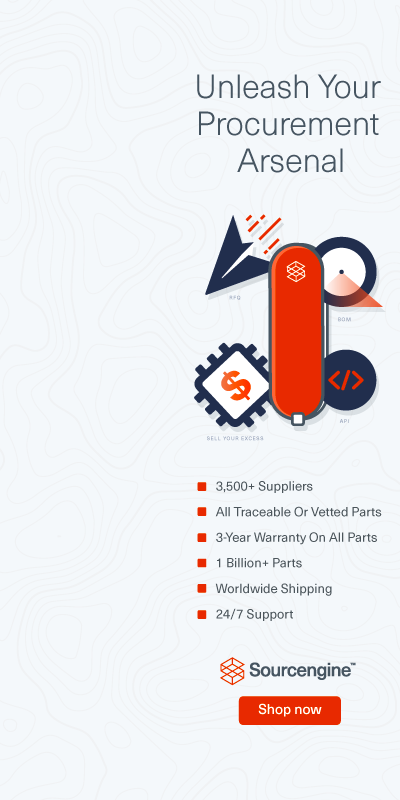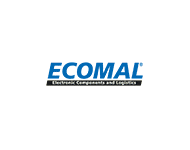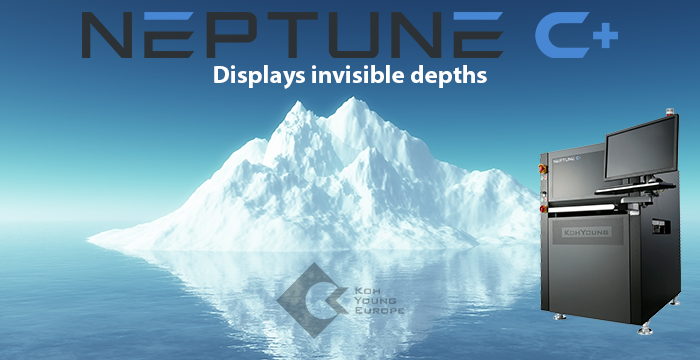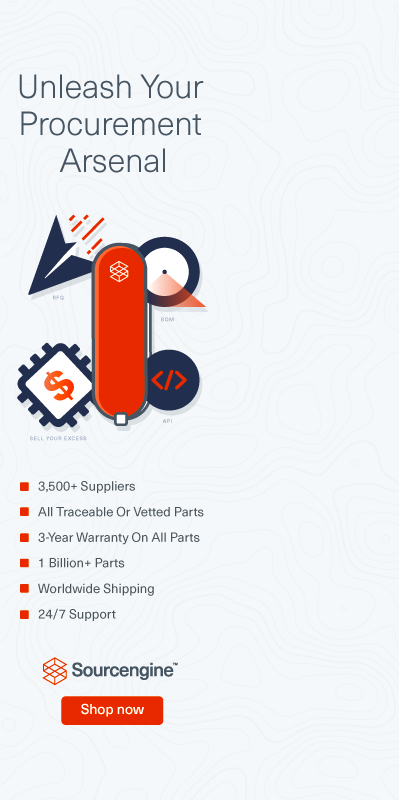
Electronics Production |
ACW strides through economic downturn
The UK-based EMS-provider ACW has plans to expand its business with a service & support centre on the East Coast region of the United States. evertiq spoke to ACW´s Dave Taylor about investment plans, the economic downturn and the effect it had on the EMS-industry in the UK.
How did FY 2008/09 go for ACW in view of the economic downturn?
Contrary to current industry trends we actually did particularly well. Our financial year ends in September we will have revenues of over £50 million, compared with last year’s revenue of £44 million. This is significant growth, with most of it coming from the second half of our financial year.
Primarily I think that’s because we have a very strong, blue chip customer base from a wide spread of market segments. We have customers in defence & aerospace, broadcasting, medical, industrial and security and it is this breadth that has given us resilience against the economic downturn. We have no automotive business and no consumer business either and, as these are the two areas that have been hardest hit, the effect on ACW has been negligible. We have also been successful in signing up two new customers in the period that has more than compensated for the small drop in business that we have seen from a few of our customers.
Is ACW’s portfolio levelled out between the above mentioned segments or are you specialised in one of them particularly?
We have two or three customers within all these segments so it tends to level out quite nicely. We are therefore not heavily dependent on any particular sector going forward which is a very comfortable position to be in. Equally, our customer base is very strong and financially robust. We are also in a position to secure new contracts and have recently won a £10 million contract against very stiff competition.
How do you see the future of the European EMS-industry in coming years?
Without a doubt, many companies rushed to go offshore into Eastern Europe or into the Far East with projects that perhaps weren’t best suited to that approach. We have our own facility in China and we carefully manage, with our customers, the projects that are right to go out there. These need to be the higher volume projects that, most importantly, must be relatively stable.
When a project needs a lot of input – especially at the start of a product’s life – our engineering team works closely with the customer to ensure that everything runs smoothly. To do that from the Far East tends to be much more difficult, the different time zones and language barriers mean it does not always work so perfectly. So I believe that many made the mistake of going there with the wrong product.
Another issue is the currency shift. Particularly here, the UK Pound Sterling is much weaker against the U.S. Dollar than it has been historically, so the low cost differentials that were seen 6 months ago are not the same as today. This also plays a part in the changes and development of the industry. However, ACW are still able to secure business from existing and new customers when the product is suitable and we see our Asian facility in a very strong position. I must however emphasise that our success in Asia has not come at the expense of our UK facilities where on both sites we are still seeing growth.
Are there particular challenges for the EMS-industry in the UK?
There are certainly major challenges and the financial crisis has put many UK companies in a very uncomfortable position. As banks have got nervous and started to withdraw lines of credit, the less robust CEMs are finding themselves unable to secure the funds to invest in the resources needed for a customer’s production. Financial strength is vital for ACW’s customers whose business often depends on shipments of their bespoke, quality products on time. There is no quick or easy road to resourcing these products, so failure of a supplier company can cause a severe setback or disaster for a customer. I expect a few competitors to fall by the wayside but the stronger ones might also profit and gain new business from that.
Do you see a considerable number of consolidations heading towards the UK-based EMS-providers in the next 1 or 2 years?
The UK has already had a trim down in the number of EMS-providers but I am sure that there will be some more thinning out. I wouldn’t like to take a guess on how many.
You operate facilities in Wales, England and in China? What specific differences do you see for each location? How many workers do you employ in each facility?
Roughly speaking, we have 200 in England, 200 in Wales and about 60 in China.
When we set up our facilities, we make sure that all of them operate in exactly the same way. We have a custom developed, in house system, based on supportable industry standard platforms, that’s accessible worldwide and can report any site’s current and past activity in seconds. We apply the same standards and ensure compliance for all our customers on all our sites. Any future facility will also operate in the same way, which will mean that we can shift work between the various facilities very easily.
However, some very specialist products, defence & aerospace for example, often need to undergo processes such as ESS (Environmental Stress Screen), and we need to invest in special equipment (nitrogen tanks, vibrating tables, etc.). We have just done that for the facility in Wales, as most of our defence & aerospace manufacturing tends to come from that facility. The majority of our industrial, higher volume, lower complexity work comes out of China, whilst in Southampton we have a very specialist broadcast engineering facility. So, although all our plants have similarities, there are some specialities in each location and indeed for some customers, we split the work between the various locations.
How long have you been operating in China?
About 3 years. It took quite a while to set it up, probably 12 months from our first visit to getting the plant up and running and we’ve grown from there. We did it all ourselves choosing not to partner with another company or buy out an existing Chinese company. We acquired a building in the Guangdong province and kitted it out to our own specification. We installed a British general manager in China, which was very important to us prior to recruiting the local staff. In parallel we have been setting up our Approved Vendor List (AVL), having a reputable and reliable source of materials has been vital to the success of the venture.
Have you ever considered Eastern Europe as a possible low-cost manufacturing location for ACW?
Certainly, Eastern Europe is a strong option. In fact we considered Eastern Europe when we looked for a low-cost manufacturing solution. In terms of a manufacturing base, it has a low cost labour force but one thing that really let it down for us was the lack of the necessary infrastructure.
When we went to China and Guangdong Province in particular, the infrastructure was impressive. There are a lot of companies involved in electronic product manufacturing and the requisite supply chain for electronic components, bare PCB, metal work, plastics etc. This made it easier for us and gave us a great base to start from. We probably would have got a similar cost base in Eastern Europe and it would have been closer, but we felt the supporting infrastructure was not as strong as in South East China.
 Are any investments planned in 2009? If yes, where?
We have invested £1.7 million in new equipment in the last 18 months and plan to continue this in 2009 and 2010.
For the future, we are looking to establish a service & support centre on the East Coast region of the United States. Some of our customers, especially in the Defence & Aerospace sector, benefit from having a higher content of their products ‘made in the USA’ so we will make it easier for them by manufacturing products in the UK and then transferring them over to an ACW owned US facility. Another reason is to offer potential US customers a secure route to our low-cost manufacturing facility in China.
We have heard about bad working conditions in EMS-facilities in China. Western goggles or serious problems?
This is a tough one to call. I have not visited them all of course but in all the EMS-companies that I have visited, the working conditions within the company looked good. They have more stringent laws now and I believe that they are being enforced. It is true that some facilities have closed down because they did not meet the new conditions imposed. I also understand that a few EMS-companies have moved to Vietnam and other places where laws are not so strict.
Certainly, in ACW’s Chinese facility, our staff are treated in the same way as they would be in Wales or England. They enjoy excellent working conditions and I know the Company is considered a good employer in the local area.
Thank you for the interview.
Are any investments planned in 2009? If yes, where?
We have invested £1.7 million in new equipment in the last 18 months and plan to continue this in 2009 and 2010.
For the future, we are looking to establish a service & support centre on the East Coast region of the United States. Some of our customers, especially in the Defence & Aerospace sector, benefit from having a higher content of their products ‘made in the USA’ so we will make it easier for them by manufacturing products in the UK and then transferring them over to an ACW owned US facility. Another reason is to offer potential US customers a secure route to our low-cost manufacturing facility in China.
We have heard about bad working conditions in EMS-facilities in China. Western goggles or serious problems?
This is a tough one to call. I have not visited them all of course but in all the EMS-companies that I have visited, the working conditions within the company looked good. They have more stringent laws now and I believe that they are being enforced. It is true that some facilities have closed down because they did not meet the new conditions imposed. I also understand that a few EMS-companies have moved to Vietnam and other places where laws are not so strict.
Certainly, in ACW’s Chinese facility, our staff are treated in the same way as they would be in Wales or England. They enjoy excellent working conditions and I know the Company is considered a good employer in the local area.
Thank you for the interview.
 Are any investments planned in 2009? If yes, where?
We have invested £1.7 million in new equipment in the last 18 months and plan to continue this in 2009 and 2010.
For the future, we are looking to establish a service & support centre on the East Coast region of the United States. Some of our customers, especially in the Defence & Aerospace sector, benefit from having a higher content of their products ‘made in the USA’ so we will make it easier for them by manufacturing products in the UK and then transferring them over to an ACW owned US facility. Another reason is to offer potential US customers a secure route to our low-cost manufacturing facility in China.
We have heard about bad working conditions in EMS-facilities in China. Western goggles or serious problems?
This is a tough one to call. I have not visited them all of course but in all the EMS-companies that I have visited, the working conditions within the company looked good. They have more stringent laws now and I believe that they are being enforced. It is true that some facilities have closed down because they did not meet the new conditions imposed. I also understand that a few EMS-companies have moved to Vietnam and other places where laws are not so strict.
Certainly, in ACW’s Chinese facility, our staff are treated in the same way as they would be in Wales or England. They enjoy excellent working conditions and I know the Company is considered a good employer in the local area.
Thank you for the interview.
Are any investments planned in 2009? If yes, where?
We have invested £1.7 million in new equipment in the last 18 months and plan to continue this in 2009 and 2010.
For the future, we are looking to establish a service & support centre on the East Coast region of the United States. Some of our customers, especially in the Defence & Aerospace sector, benefit from having a higher content of their products ‘made in the USA’ so we will make it easier for them by manufacturing products in the UK and then transferring them over to an ACW owned US facility. Another reason is to offer potential US customers a secure route to our low-cost manufacturing facility in China.
We have heard about bad working conditions in EMS-facilities in China. Western goggles or serious problems?
This is a tough one to call. I have not visited them all of course but in all the EMS-companies that I have visited, the working conditions within the company looked good. They have more stringent laws now and I believe that they are being enforced. It is true that some facilities have closed down because they did not meet the new conditions imposed. I also understand that a few EMS-companies have moved to Vietnam and other places where laws are not so strict.
Certainly, in ACW’s Chinese facility, our staff are treated in the same way as they would be in Wales or England. They enjoy excellent working conditions and I know the Company is considered a good employer in the local area.
Thank you for the interview.





